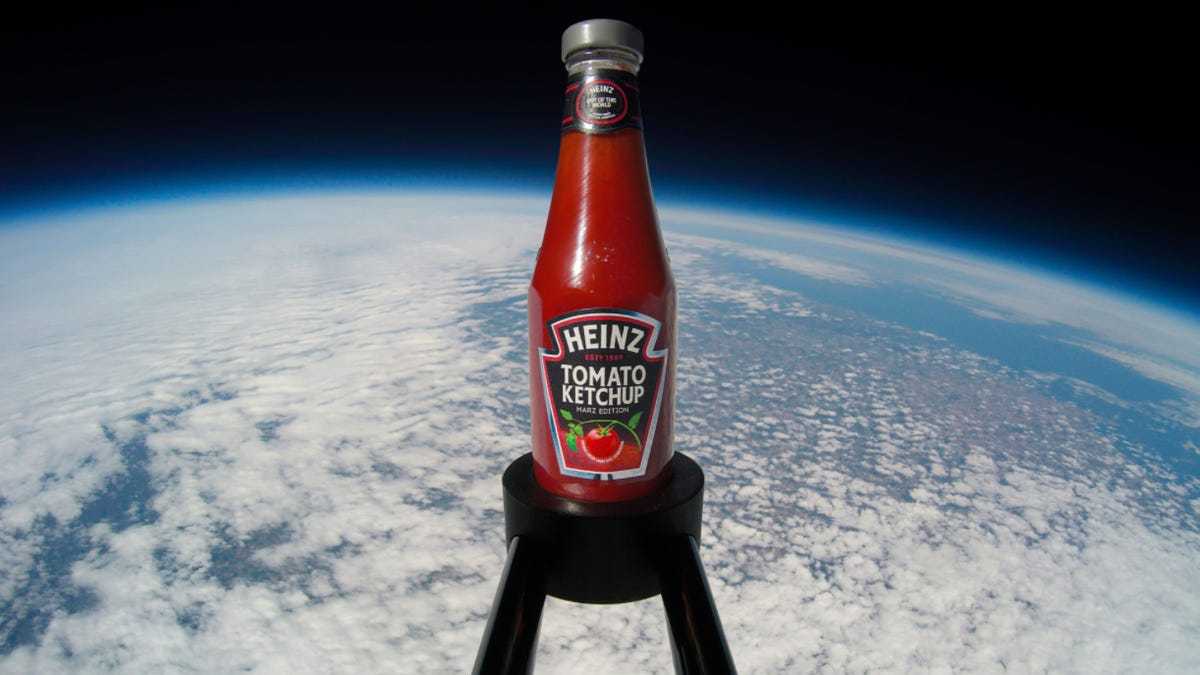Ketchup on Mars: Heinz preps for a future with condiments on the red planet
Someone else is going to have to figure out the mustard.
Matt Damon in The Martian was one letter off. Instead of potatoes, he should have been growing tomatoes, with an eye toward making space-ketchup. Because what's the point of French fries on Mars if you don't have anything to dip them in?
Heinz, a brand of ketchup you may have heard of, enlisted a team of astrobiologists to answer the most pressing question of our time: Will future human settlers on Mars be able to make their own ketchup?
Heinz collaborated with 14 astrobiologists at the Aldrin Space Institute at Florida Tech to grow tomatoes in a simulated Martian soil.
"The team successfully yielded a crop of Heinz tomatoes, from the brand's proprietary tomato seeds, with the exacting qualities that pass the rigorous quality and taste standards to become its iconic ketchup," the company said in a statement on Monday.
These tomato plants were grown in simulated Mars conditions.
You can't buy a bottle of the Heinz Marz Edition ketchup, but you can take comfort in knowing your great-great-(great?)-grandchildren living inside their Muskville domes on the red planet will be able to slather some of the good stuff on their burger buns.
While this is a clever bit of marketing, there was also some serious science happening.
"Before now, most efforts around discovering ways to grow in Martian-simulated conditions are short-term plant growth studies. What this project has done is look at long-term food harvesting. Achieving a crop that is of a quality to become Heinz Tomato Ketchup was the dream result and we achieved it," said astrobiologist Andrew Palmer, who led the two-year project.
Palmer and his team have submitted several papers on the tomato-growing endeavor for publication.
Researchers have been investigating ways to feed future human visitors and settlers using resources that are already on Mars. A team in the Netherlands managed to grow a bounty of veggies -- including peas, spinach and leeks -- in simulated Martian soil. They also harvested tomatoes.
It's one thing to grow plants on Earth with faux Mars dirt, and another to replicate the feat on Mars itself. Mars farmers will likely need to use specialized plant habitats and sort out how best to fertilize and water the crops. When it comes to ketchup, they'll also need to figure out the rest of the recipe, which calls for vinegar, sugar, onion powder and spices.
Heinz is no stranger to space. Its ketchup is in use on the International Space Station. It might seem a little silly to be thinking ahead to ketchup on Mars, but varied food sources and, yes, flavors will be important to the wellbeing of future astronauts who are far, far from home.


